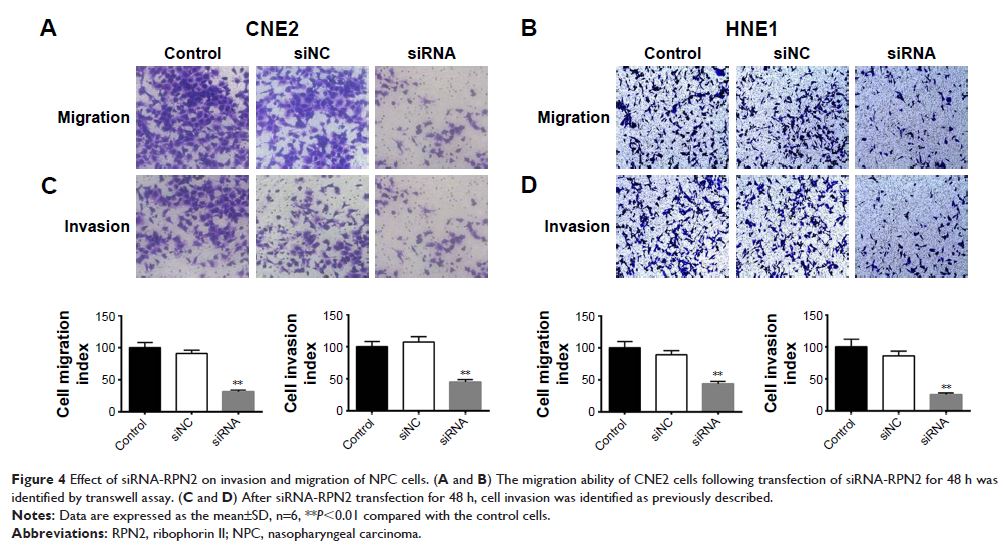108605
论文已发表
注册即可获取德孚的最新动态
IF 收录期刊
- 3.4 Breast Cancer (Dove Med Press)
- 3.2 Clin Epidemiol
- 2.6 Cancer Manag Res
- 2.9 Infect Drug Resist
- 3.7 Clin Interv Aging
- 5.1 Drug Des Dev Ther
- 3.1 Int J Chronic Obstr
- 6.6 Int J Nanomed
- 2.6 Int J Women's Health
- 2.9 Neuropsych Dis Treat
- 2.8 OncoTargets Ther
- 2.0 Patient Prefer Adher
- 2.2 Ther Clin Risk Manag
- 2.5 J Pain Res
- 3.0 Diabet Metab Synd Ob
- 3.2 Psychol Res Behav Ma
- 3.4 Nat Sci Sleep
- 1.8 Pharmgenomics Pers Med
- 2.0 Risk Manag Healthc Policy
- 4.1 J Inflamm Res
- 2.0 Int J Gen Med
- 3.4 J Hepatocell Carcinoma
- 3.0 J Asthma Allergy
- 2.2 Clin Cosmet Investig Dermatol
- 2.4 J Multidiscip Healthc

本文章已被撤回:核糖蛋白 II 的下调可抑制鼻咽癌的肿瘤生长、迁移和的侵袭
Authors Hong F, Li Y, Ni H, Li J
Received 28 November 2017
Accepted for publication 11 March 2018
Published 15 June 2018 Volume 2018:11 Pages 3485—3494
DOI https://doi.org/10.2147/OTT.S158355
Checked for plagiarism Yes
Review by Single-blind
Peer reviewers approved by Dr Ashok Kumar Pandurangan
Peer reviewer comments 2
Editor who approved publication: Prof. Dr. Geoffrey Pietersz
***本文章已被撤回***
Background: It has been reported
that ribophorin II (RPN2) expression is increased in many cancers, but the role
of RPN2 in nasopharyngeal carcinoma (NPC) remains unclear.
Patients and methods: This study found that the expression of RPN2 is
increased dramatically in NPC tissues of patients compared with that in the
adjacent normal tissues. This study attempted at understanding the effect of
siRNA-RPN2 treatment on the migration and invasion of NPC cell lines CNE2 and
HNE1.
Results: RT-PCR and Western blotting showed that RPN2 was
highly expressed in CNE2 and HNE1 cells. siRNA-RPN2 treatment significantly
inhibited cell viability at 24 and 48 h compared with the control group.
Results of the transwell assay showed that, compared to the control groups, migration
and invasion of the cells treated with siRNA-RPN2 decreased markedly. In
addition, compared to the control groups, caspase-3, caspase-9, and E-cadherin
expression levels increased and MMP 2 expression decreased significantly in the
siRNA-RPN2-treated group. Phosphorylation of AKT and PI3K was also inhibited
after siRNA-RPN2 treatment.
Conclusion: siRNA-RPN2 can effectively inhibit the invasion
and migration of human NPC cells via AKT/PI3K signaling. This can serve as a
novel strategy for NPC treatment.
Keywords: siRNA-RPN2,
nasopharyngeal carcinoma, migration, invasion, MMP2, MMP9
